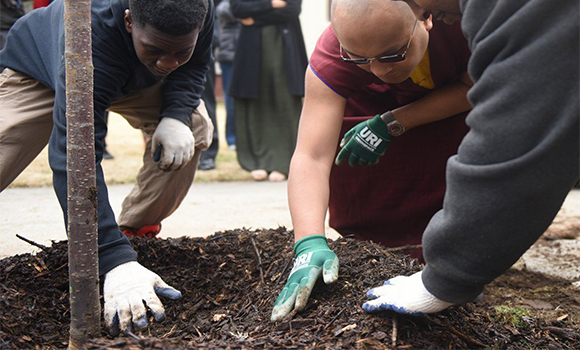
Since this has been designated the World Environment Day, many people today are acting and thinking of ways to conserve and protect our shared planet. This is a positive step in addressing the environmental crisis, which in my view is the greatest challenge facing 21st-century society. It gives hope for the future when special efforts are made to turn our attention to the state of our world’s natural environment.
As a Tibetan, I have a particular connection to the natural environment of the Tibetan plateau and the Himalayas. However, The Himalayas and Tibetan plateau constitute a part of our shared planet that has an importance that extends far beyond their own part of the world. The glaciers and ice of the Himalayas and Tibetan plateau serve as the source of such a large portion of Asia’s rivers that it is known as Asia’s water tower. More widely, the Tibetan plateau has come to be known as the world’s Third Pole, reflecting its global importance. The issue of the Tibetan environment is therefore not a matter of concern solely to any single country. The issue of the Tibetan natural environment is an issue for all of Asia. Indeed, looking more broadly, it is an issue that concerns the entire world. From this wider angle, we can see that the Tibetan people had lived in harmony for thousands of years with the natural environment of the Tibetan plateau. Therefore, in order to protect that Tibetan environment, there is a need to protect the Tibetan way of life, with its culture, spiritual traditions and customs that are compatible with and suited to that fragile environment.
We all bear responsibilities to care for the shared natural environment that has sustained us throughout every moment of our lives. There is a great deal we can do when we join our forces and seek ways to work together to conserve our existing natural resources and reduce the consumption patterns that drive our over-exploitation of the environment. Nor is this a crisis that can be solved by a single person, or even a single country. Each one of us carries our own share of that responsibility. When we all lend our hands to the work, this burden can surely be carried. And carry it we must. Given the critical state we have now reached, and the rapid rate of change, this is not a burden we can leave for future generations to resolve.
5 June, 2015
The17th Gyalwang Karmapa, Ogyen Trinley Dorje


